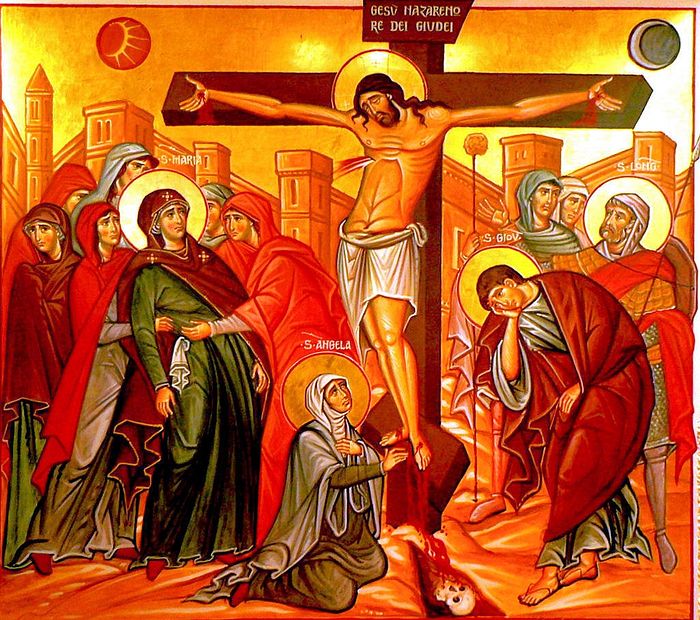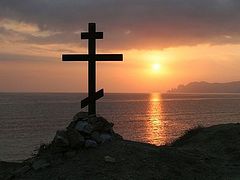What is the "handwriting against us” in Colossians 2:11-15? Is it our sins or the Law or both or neither?"
The text, as we have it in the King James Version is as follows:
In whom also ye are circumcised with the circumcision made without hands, in putting off the body of the sins of the flesh by the circumcision of Christ: buried with him in baptism, wherein also ye are risen with him through the faith of the operation of God, who hath raised him from the dead. And you, being dead in your sins and the uncircumcision of your flesh, hath he quickened together with him, having forgiven you all trespasses; blotting out the handwriting of ordinances that was against us, which was contrary to us, and took it out of the way, nailing it to his cross; and having spoiled principalities and powers, he made a shew of them openly, triumphing over them in it.
The key word to consider here is the word translated as "ordinances." Some have tried to use this text as if this word refered to the Old Testament Law, and then to suggest that Christ blotted out the Law, however the word in question in Greek is "δογμασιν" (the dative plural of δογμα [dogma]) from which the English word "dogma" is derived—however, that connection with the word "dogma" is somewhat misleading. The word is used by both Philo and Josephus in reference to both philosophical principles and imperial decrees (Theological Dictionary of the New Testament, 2:231). The sense of "decree" is the sense we find this verse taken in both the Fathers and the services of the Church. It is the handwriting of the decree that was against us, i.e. the righteous sentence of God due to us for our sins which are blotted out, and nailed to the Cross. By extrapolation, some texts speak of it more generally as the debt of our sin, but this is focusing on the penalty of the sentence against us.
St. Irenaeus: “He destroyed the handwriting of our debt and fastened it to the Cross, so that as by means of a tree we were made debtors to God, so also by means of a tree we may obtain remission of the debt.” (Against Heresies 5:17:3).
St. John Chrysostom: "See to it that we do not again become debtors to the old contract. Christ came once; he found the certificate of our ancestral indebtedness which Adam wrote and signed. Adam contracted the debt; by our subsequent sins we increased the amount owed. In this contract are written a curse, and sin, and death and the condemnation of the law. Christ took all these away and pardoned them. St. Paul cries out and says: "The decree of our sins which was against us, he has taken it completely away, nailing it to the cross." He did not say "erasing the decree,' nor did he say "blotting it out," but "nailing it to the cross," so that no trace of it might remain. This is why he did not erase it, but tore it to pieces" (Baptismal Instructions 3:21, quoted in Ancient Christian Commentary on Scripture: New Testament, Vol. IX, Peter Gorday, ed. [Downers Grove, IL: Intervasity Press, 2000] p. 33).
St. Ambrose of Milan: "But Christ was sold because he took our condition upon himself, not our sins themselves; he is not held to the price of sin, because he himself did not commit sin. And so he made a contract at a price for our debt, not for money for himself; he took away the debtor's bond, set aside the moneylender, freed the debtor. He alone paid what was owed by all. We ourselves were not permitted to escape from bondage. He undertook this on our behalf, so that he might drive away the slavery of the world, restore the liberty of paradise and grant new grace through the honor we received by his sharing of our nature. This by way of a mystery" (Joseph 4:19, quoted in Ancient Christian Commentary on Scripture: New Testament, Vol. IX, Peter Gorday, ed. [Downers Grove, IL: Intervasity Press, 2000] p. 34).
Ambrosiaster: "Having defeated the princes and powers by the death of Christ, God annulled the sentence which had been decreed against us by the sin of Adam, for just as the names of those who act well are in the book of life, so also the names of sinners are in the book of death. Therefore God annulled the sentence by which we were guilty of death both by our own sin and by that of our ancestor, having conquered death in Christ and triumphed over the devil and his puppets in his own flesh" (Ancient Christian Texts: Commentaries on Galatians —Philemon, Ambrosiaster, translated and edited by Gerald L. Bray [Downers Grove, IL: Intervasity Press, 2009] p. 89).
St. Ephrem the Syrian: “At the birth of the Son the King was enrolling all men for the tribute money, that they might be debtors to Him; the King came forth to us Who blotted out our bills and wrote another bill in His own Name that He might be our debtor” (Hymns on the Nativity, 4).
St. John Cassian: "At the sixth hour the spotless victim, our Lord and Savior, was offered to the Father, and mounting the cross for the salvation of the whole world he destroyed the sins of the human race. Despoiling principalities and powers, he delivered them over publicly (Colossians 2:15), and he freed all of us who were subject to and burdened by the record of our unpayable debt, removing it from our midst and fixing it to the trophy of his cross (Colossians 2:14) (The Institutes, 3:3:3, trans. Boniface Ramsey, O.P. [New York, NY: The Newman Press, 2000], p. 60).
St. Gregory Palamas: "For this reason the Lord patiently endured for our sake a death He was not obliged to undergo, to redeem us, who were obliged to suffer death, from servitude to the devil and death, by which I mean death both of the soul and of the body, temporary and eternal. Since He gave His blood, which was sinless and therefore guiltless, as a ransom for us who were liable to punishment because of our sins, He redeemed us from our guilt. He forgave us our sins, tore up the record of them on the Cross and delivered us from the Devil's tyranny (cf. Col 2:14-15)" (Christopher Veniamin, trans. Saint Gregory Palamas: The Homilies [Waymart, PA: Mount Thabor Publishing, 2009] p. 128f).
"Thou hast not imitated the Harlot, O my wretched soul, who took the alabaster jar of myrrh and with tears anointed the feet of the Savior and wiped them with her hair. For this, He tore up the handwriting of her sins" (from the 9th Ode of the Great Canon).
"O God and Lord of Hosts, and Maker of all Creation, Who by the tender compassion of Thy mercy which transcendeth comprehension, didst send down Thine only-begotten Son, our Lord Jesus Christ, for the salvation of our race, and by His precious Cross didst tear asunder the handwriting of our sins, and thereby didst triumph over the principalities and powers of darkness: Do Thou Thyself, O Master, Lover of mankind, accept also from us sinners these prayers of thanksgiving and entreaty, and deliver us from every destructive and dark transgression, and from all enemies, both visible and invisible, that seek to do us evil. Nail down our flesh with the fear of Thee, and incline not our hearts unto words or thoughts of evil, but pierce our souls with longing for Thee, so that ever looking to Thee, and being guided by Thy Light as we behold Thee, the unapproachable and everlasting Light, we may send up unceasing praise and thanksgiving unto Thee, the Unoriginate Father, with Thine Only-begotten Son, and Thine All-holy and good and life-creating Spirit, now and ever, and unto the ages of ages" (The prayer at the Sixth Hour).
"O Thou who on the sixth day and in the sixth hour didst nail to the Cross Adam’s daring sin in Paradise, tear asunder also the handwriting of our sins, O Christ God, and save us" (Troparion at the Sixth Lenten Hour).




